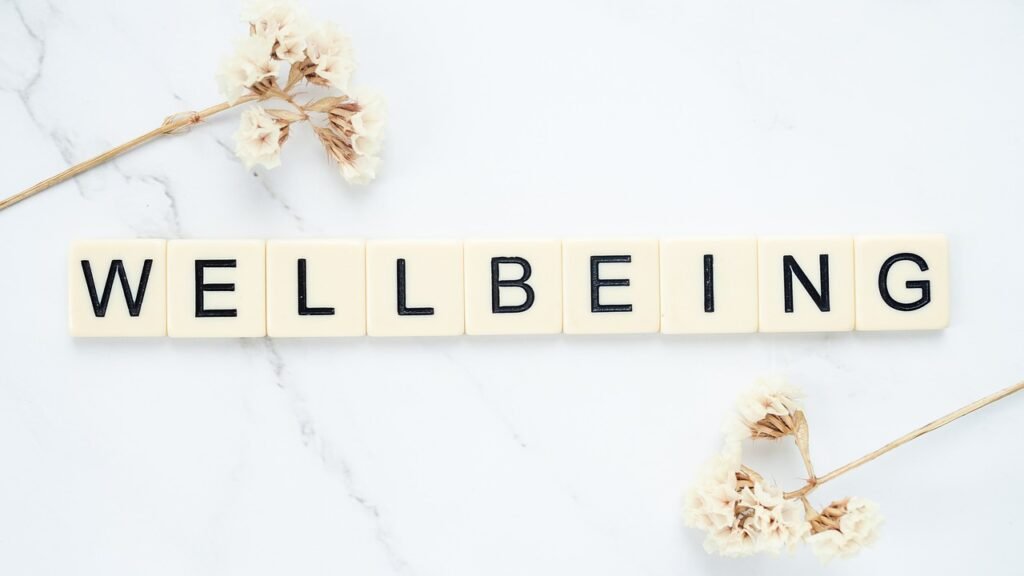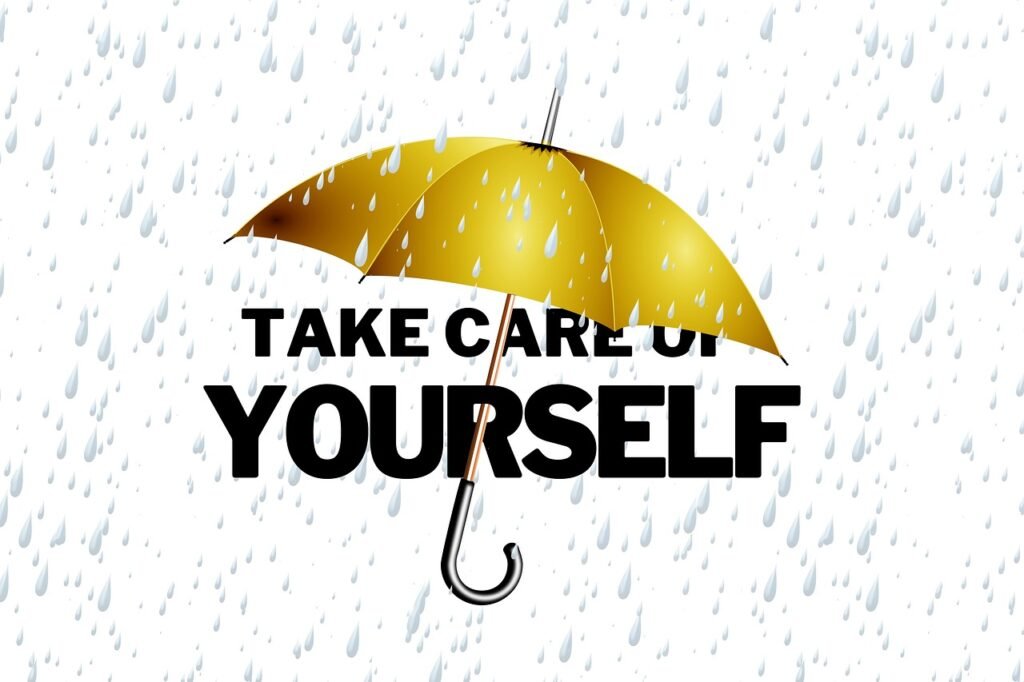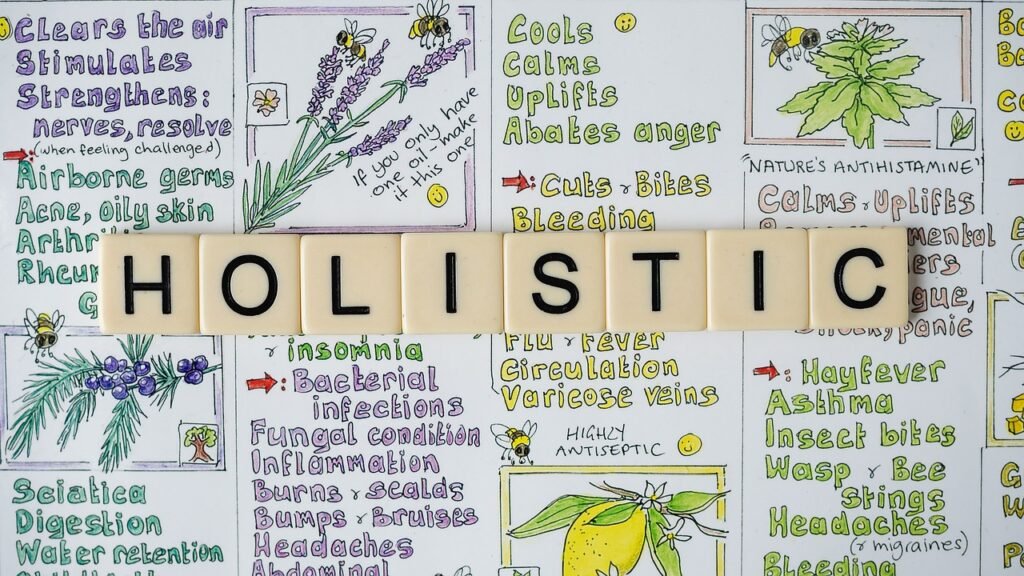
Introducing the Concept of Mindset 2 Wellness

Welcome to the transformative journey of Mindset 2 Wellness, where unlocking your full potential becomes an achievable goal.
In today’s fast-paced society, balancing various aspects of life can often feel overwhelming.
However, with the right strategies and mindset, finding harmony between your mind and body is not only possible but immensely rewarding.
Mindset 2 Wellness is about adopting a forward-thinking approach to personal growth and well-being.
This concept encourages you to integrate a series of essential strategies into your everyday routine, helping you create a lifestyle that supports both mental and physical health.
Imagine visiting a Spa and wellness Center designed not just for relaxation but also for nurturing your entire being.
These centers often serve as a sanctuary, offering a holistic approach that complements the principles of Mindset 2 Wellness.
But the beauty of this concept is that you don’t need to be at a Mind body wellness spa to benefit.
You can cultivate these habits right at home, making wellness an integral part of your life.
The foundation of Mindset 2 Wellness involves a blend of positive thinking, setting realistic goals, building resilience, practicing mindfulness, engaging in self-care, and fostering gratitude.
These strategies collectively guide you toward a healthier and more balanced lifestyle.
Positive thinking, for instance, has been shown to drastically improve mental and physical well-being.
Visualization techniques and surrounding yourself with supportive individuals can significantly amplify these effects.
Similarly, setting achievable goals provides a roadmap for success, helping you stay motivated and focused.
Resilience plays a crucial role in this journey as well.
Learning to view challenges as growth opportunities rather than setbacks can significantly enhance your ability to bounce back from adversity.
Incorporating mindfulness practices into your daily routine can help you stay present and grounded, while self-care activities recharge your mind and body.
Finally, cultivating gratitude shifts your perspective, helping you appreciate the abundance in your life.
Simple acts like keeping a gratitude journal or expressing thanks to others can profoundly impact your overall happiness and well-being.
Embark on this journey of self-discovery and transformation with Mindset 2 Wellness, and experience the holistic benefits it brings to your life.
Grasping the Power of Positive Thinking

The power of positive thinking can transform your outlook on life, leading to profound benefits for both your mental and physical health.
Studies show that positive thinking and optimism can lead to a variety of health benefits.
To practice and enhance positive thinking, start by identifying negative thoughts and consciously replacing them with positive affirmations.
Visualization techniques, where you picture yourself achieving your goals, can also bolster positive thinking.
Additionally, surrounding yourself with supportive and positive individuals can help reinforce an optimistic mindset.
Crafting Achievable Goals

Crafting achievable goals is a cornerstone of personal development and wellness.
When your goals are realistic and attainable, you set yourself up for continuous progress rather than frustration.
Start by breaking down your larger objectives into smaller, manageable tasks.
This makes the process less overwhelming and allows you to track your progress more effectively.
Each small win serves as a stepping stone, building momentum and confidence as you move forward.
One useful method is the SMART criteria: Specific, Measurable, Achievable, Relevant, and Time-bound.
By ensuring your goals meet these criteria, you enhance their clarity and attainability.
For instance, instead of setting a vague goal like “get fit,” opt for something more specific like “exercise for 30 minutes, five times a week.”
This approach not only provides a clear action plan but also allows you to measure your success.
Regularly reviewing and adjusting your goals is equally important.
Life is dynamic, and your circumstances can change.
What seemed achievable a few months ago might need tweaking today.
Periodic reassessment ensures your goals remain relevant and aligned with your current situation and long-term aspirations.
Visualization can also play a key role in achieving your goals.
By vividly imagining yourself accomplishing your objectives, you create a mental blueprint that guides your actions.
This mental rehearsal can enhance your motivation and prepare you for potential obstacles.
Accountability is another powerful tool.
Sharing your goals with a friend or mentor can provide external motivation and support.
When someone else is aware of your objectives, you’re more likely to stay committed.
Regular check-ins can offer valuable feedback and encouragement, helping you stay on track.
Lastly, don’t underestimate the importance of celebrating your progress.
Recognizing and rewarding yourself for small achievements can boost your morale and keep you motivated.
Whether it’s treating yourself to a favorite activity or simply acknowledging your hard work, these moments of celebration can reinforce your commitment to your goals.
By thoughtfully crafting and pursuing achievable goals, you pave the way for sustained success and personal growth.
Each step, no matter how small, brings you closer to a balanced and fulfilling lifestyle.
Enhancing Personal Resilience

Resilience is more than just bouncing back from tough times; it’s about cultivating the inner strength to face challenges head-on and thrive despite adversity.
Building personal resilience starts with shifting your mindset.
Viewing obstacles as opportunities for growth rather than insurmountable barriers can drastically alter how you respond to life’s ups and downs.
When you perceive challenges as learning experiences, you empower yourself to grow stronger and more capable.
One effective strategy for enhancing resilience is to practice stress-reducing techniques.
Simple exercises such as deep breathing, progressive muscle relaxation, or even a few minutes of meditation can help you manage stress in the moment.
These practices are not just quick fixes but valuable tools that, when regularly integrated into your routine, can build your overall stress tolerance.
Another key element of resilience is maintaining a supportive social network.
Surrounding yourself with friends, family, or even a community group can provide the emotional support needed to navigate difficult times.
Knowing you have people who care about you can be a tremendous source of strength and can help you gain new perspectives on the challenges you face.
Reflecting on past experiences can also be incredibly empowering.
Take a moment to think about previous challenges you’ve overcome.
What strategies did you use? What strengths did you discover about yourself?
Recognizing your past achievements can boost your confidence in handling future difficulties.
This self-awareness helps build a reservoir of mental strength that you can draw upon when needed.
Additionally, fostering a sense of purpose can significantly contribute to resilience.
Whether it’s through work, hobbies, or volunteering, engaging in activities that give you a sense of meaning can provide a much-needed anchor during turbulent times.
Purpose-driven activities offer a sense of direction and motivation, helping you stay focused and resilient in the face of adversity.
Lastly, don’t underestimate the power of self-compassion.
Being kind to yourself, especially during setbacks, can make a world of difference. Acknowledge your efforts and treat yourself with the same kindness you would offer a friend.
This practice can alleviate feelings of failure and promote a more positive and resilient mindset.
By incorporating these strategies into your life, you not only enhance your ability to cope with stress but also build a stronger, more resilient version of yourself.
Exploring Mindfulness Techniques

Mindfulness is a powerful tool for enhancing mental clarity and emotional stability.
By staying present and fully engaging with the current moment, you can reduce stress and improve your overall well-being.
Simple mindfulness exercises, such as mindful breathing or body scans, can be easily incorporated into your daily routine.
These practices encourage you to pay attention to your thoughts and feelings without judgment, fostering a sense of inner peace and balance.
One of the simplest yet most effective mindfulness techniques is mindful breathing.
Start by finding a quiet place to sit comfortably.
Close your eyes and focus on your breath as it moves in and out.
Notice the sensations in your nostrils, chest, and abdomen as you breathe.
If your mind starts to wander, gently bring your attention back to your breath.
Practicing this for just a few minutes each day can help anchor your mind and reduce stress.
Another valuable practice is the body scan.
Lie down or sit comfortably, and slowly bring your attention to different parts of your body, starting from your toes and moving up to your head.
Notice any sensations, tension, or discomfort without trying to change anything.
This exercise can help you become more aware of your physical state and promote relaxation.
Mindful eating is another excellent technique to try. Rather than rushing through meals, take the time to savor each bite.
Pay attention to the colors, textures, and flavors of your food.
Eating mindfully can not only enhance your dining experience but also improve your digestion and relationship with food.
Engaging in mindful walking can also be incredibly grounding.
As you walk, focus on the sensation of your feet touching the ground, the rhythm of your steps, and the movement of your body.
This practice can turn a simple walk into a meditative experience, helping you connect with your surroundings and clear your mind.
Incorporating mindfulness into your daily activities, like brushing your teeth or washing dishes, can make a significant impact.
By paying attention to the sensations, movements, and even sounds involved in these tasks, you transform routine actions into moments of mindful awareness.
By exploring these mindfulness techniques, you create opportunities to cultivate a more present, focused, and serene state of mind.
The Significance of Self-Care

Self-care is a critical element in the journey toward holistic wellness, acting as the cornerstone that supports both your mental and physical health.
Engaging in self-care isn’t just about indulgence; it’s about creating a sustainable routine that replenishes your energy and fosters resilience.
Activities like yoga and meditation are excellent for reducing stress and promoting relaxation.
These practices offer a chance to tune into your body and mind, providing a break from the hustle and bustle of daily life.
Additionally, spending time in nature can have profound benefits.
Whether it’s a walk in the park, hiking a trail, or simply sitting by a lake, nature has a unique way of calming the mind and rejuvenating the spirit.
The natural environment can serve as a peaceful retreat where you can disconnect from the demands of technology and reconnect with yourself.
Another essential aspect of self-care is adequate sleep.
Quality sleep is crucial for cognitive function, emotional balance, and overall health.
Establish a bedtime routine that promotes relaxation, such as reading a book, listening to calming music, or practicing gentle stretches.
Creating a restful sleep environment by keeping your bedroom cool, dark, and quiet can significantly improve the quality of your sleep.
Nutrition also plays a pivotal role in self-care.
Fueling your body with nutritious foods can boost your energy levels, improve your mood, and enhance your overall well-being.
Try to incorporate a balanced diet that includes a variety of fruits, vegetables, lean proteins, and whole grains.
Staying hydrated is equally important; aim to drink plenty of water throughout the day.
It’s also essential to carve out time for hobbies and activities that bring you joy.
Whether it’s painting, gardening, playing an instrument, or any other creative endeavor, engaging in activities you love can provide a much-needed mental break and foster a sense of fulfillment.
Lastly, don’t forget the power of social connections.
Spending time with friends and family can provide emotional support and strengthen your sense of community.
Meaningful interactions can lift your spirits and remind you that you’re not alone in your journey.
Incorporating these self-care practices into your routine can create a balanced and sustainable approach to wellness, helping you navigate life’s challenges with renewed energy and positivity.
Nurturing a Grateful Mindset

Gratitude has the remarkable ability to shift your perspective and enhance your overall well-being.
By actively focusing on what you appreciate, you can experience a profound shift in your mental and emotional state.
A simple yet effective way to nurture a grateful mindset is to keep a gratitude journal.
Dedicate a few minutes each day to jot down three things you’re thankful for.
These can be as grand as a major achievement or as simple as a delicious meal.
The act of writing them down helps solidify these positive experiences in your mind, making it easier to recall them during challenging times.
Expressing gratitude to others can also amplify its benefits.
Sending a heartfelt thank-you note or verbally expressing your appreciation can strengthen your relationships and create a ripple effect of positivity.
People often feel more valued and connected when their efforts are acknowledged, fostering a supportive and uplifting environment for everyone involved.
Another powerful practice is to incorporate moments of gratitude into your daily routine.
For instance, before you start your day, take a moment to think about something you’re looking forward to or something that makes you happy.
Similarly, before going to bed, reflect on the positive aspects of your day.
These small, mindful pauses can significantly enhance your mood and outlook.
Engaging in gratitude meditation is another effective method.
During this practice, focus on the things you’re grateful for, allowing yourself to fully experience the emotions associated with each one.
This can be a calming and enriching way to start or end your day, grounding you in a sense of abundance and well-being.
You can also create visual reminders of gratitude.
Place photos or mementos of experiences and people you cherish in areas where you spend a lot of time.
These visual cues can serve as constant reminders of the good things in your life, helping you maintain a grateful mindset throughout the day.
Incorporating these practices into your life can help you develop a habit of gratitude, enriching your mental and emotional health.
Wrapping Up: Adopting Mindset 2 Wellness

Integrating Mindset 2 Wellness into your life is about more than just a few changes; it’s a holistic transformation that touches every aspect of your well-being.
The strategies discussed, such as positive thinking, setting achievable goals, building resilience, practicing mindfulness, engaging in self-care, and fostering gratitude, all serve as the building blocks for a more balanced and fulfilling lifestyle.
Think of it as creating a personalized wellness plan that adapts to your needs.
Whether you’re taking a break at a Spa and wellness Center or incorporating these practices into your daily routine at home, each step is an investment in your health and happiness.
The beauty of Mindset 2 Wellness is its flexibility—it can be tailored to fit into your unique lifestyle, making it accessible and practical for everyone.
These strategies aren’t just theoretical; they are actionable steps that can be seamlessly woven into your daily life.
Imagine starting your day with a few moments of mindfulness, setting clear and realistic goals, and ending it with a reflection on what you’re grateful for.
These small, consistent actions can lead to profound changes over time.
Remember, the journey to wellness is ongoing.
Regularly reassess and adjust your approach to ensure it continues to meet your evolving needs and circumstances.
Surround yourself with supportive individuals who encourage your growth and well-being.
By embracing the principles of Mindset 2 Wellness, you pave the way for a life that is not only healthier but also more satisfying and resilient.
Make today the starting point of this enriching journey, and watch as the positive impacts reverberate throughout every facet of your life.
